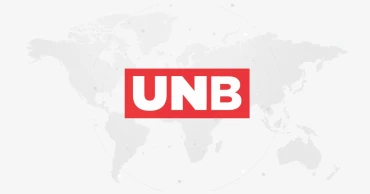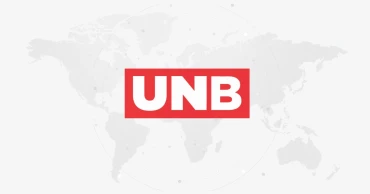human trafficking
Human trafficking, instability erode global trust in Bangladesh’s passports
Bangladesh’s global mobility and international standing have suffered a sharp blow over the past year, with its passport ranking plunging to one of the weakest in the world amid reports of visa restrictions, deportations and rising global distrust.
According to the 2025 Henley Passport Index, released on October 14 by UK-based Henley & Partners, Bangladesh now ranks 100th out of 106 countries, leaving its passports the seventh weakest globally.
Bangladesh shares this position with North Korea while Palestine ranks one spot higher at 99th.
Bangladeshi citizens currently enjoy visa-free access to only 38 countries, a figure many travelers dispute due to growing incidents of denial and enhanced scrutiny even at ‘visa-free’ destinations.
A passport’s strength depends on various factors such as a nation’s economic and social Condition and development, job prospects, diplomatic engagement, visa agreements, cultural or historical connections and patterns of irregular migration.
Visa Restrictions and Diplomatic Strains
Experts attribute the decline to governance failures, human trafficking scandals, and strained diplomatic relations since the student-led ouster of the Sheikh Hasina government.
Relations with India, Bangladesh’s largest travel destination, deteriorated sharply after the change.
India closed all visa centers across Bangladesh on August 5, 2024, citing ‘security concerns’, though limited medical and student visa services later resumed.
Sri Lanka has made pre-arrival Electronic Travel Authorization (ETA) mandatory while Saudi Arabia suspended work visas for Bangladeshis and 13 other nations in May 2025.
Govt plans to lower passport costs for overseas Bangladeshis
Denmark and several Southeast Asian countries, including Malaysia, Thailand, Singapore, and Vietnam, have also tightened visa processes for Bangladeshi applicants.
Travelers report longer verification times, higher rejection rates and even offloading at immigration checkpoints despite holding valid visas.
Crisis Deeping
The recent wave of deportations of undocumented Bangladeshis has worsened the country’s passport crisis.
On September 8, Kyrgyzstan deported 180 unregistered Bangladeshis who fell victims to fraud while the US sent back 30 earlier that month.
Between January 2024 and September 2025, at least 187 Bangladeshis were deported from the US.
In late September, another 52 Bangladeshis were deported from Italy, Austria, Greece, and Cyprus, and on August 30, the UK deported 15 for immigration violations, according to media reports.
Malaysia also sent back 98 Bangladeshis on August 15 following earlier deportations of 204 others.
Human Trafficking Undermining Trust
Analysts say these failures, combined with the surge in irregular migration and human trafficking, have directly contributed to Bangladesh’s passport devaluation and declining credibility abroad.
‘Except Israel’ to be reinstated on Bangladeshi passport
The 2025 US Department of State Trafficking in Persons (TIP) Report again placed Bangladesh in Tier 2, noting limited progress in combating trafficking.
The report documented 3,410 Bangladeshi victims last year, 765 in sex trafficking, 2,572 in forced labour, and 73 in other forms of exploitation while government figures acknowledged only 1,462 victims.
Besides, the law-and-order situation has sharply deteriorated since mid-2024.
According to Ain o Salish Kendra (ASK), 179 people were killed in mob attacks between August, 2024 and June, 2025, including several cases that shocked the nation including the lynching of two men in Rangpur’s Taraganj on August 9.
At an event in July at the Foreign Service Academy, Asif Nazrul, Expatriates’ Welfare Adviser Asif Nazrul said that despite holding a red official passport, he still faced suspicious looks abroad simply for being Bangladeshi.
Bangladesh moves up one step in global passport strength index
He added that when he used a regular green passport, the challenges were ‘far worse’.
Foreign Affairs Adviser Touhid Hossain, speaking at the same event, admitted that Bangladeshis often face harassment overseas, saying the passport’s declining value is partly the nation’s own responsibility, not just that of foreign authorities.
Dhaka University Professor Aynul Islam said Bangladesh’s passport ranking fell for two main reasons.
“Technically, our e-passport isn’t well integrated with global databases, it is readable but not fully adaptive or advanced, so Bangladeshis can’t use automatic immigration systems,” he explained.
“Besides, after the political changeover, a tendency was seen among many to migrate abroad.”
Many have misused their passports or used them illegally, committing fraud or providing false information, he said.
Aynul Islam said, since July 24, the number of Bangladeshis seeking political asylum overseas has been higher than ever before.
“These developments have made several countries cautious, prompting them to restrict the entry of Bangladeshi nationals.”
"Similar trends in Sri Lanka and Nepal have worsened the region’s image, prompting several embassies in Dhaka to stop accepting Bangladeshi passports.”
“This broader regional trend has contributed to the decline in passport rankings, as countries are increasingly reluctant to accept travelers from these nations.”
4 months ago
Targeted awareness, outreach efforts 'essential' to prevent human trafficking, says Blinken
The US has said human trafficking is a crime globally that deprives millions of people of their dignity and freedom.
"To properly tackle this crime, it will take a commitment from each of us to end human trafficking. Targeted awareness and outreach efforts are essential," said US Secretary of State Anthony Blinken.
An estimated 27.6 million are now victims of trafficking worldwide.
Read more: UN Special Rapporteur will assess rights violation in trafficking during official visit to Bangladesh
This month is National Human Trafficking Prevention Month, a time for people, organisations, communities, and federal organisations to join in "our efforts to combat all forms of human trafficking, including sex trafficking and forced labour," he said.
The US Agency for International Development's (USAID) Fight Slavery and Trafficking in Persons Project organised an event last week to bring together government and civil society stakeholders to incorporate feedback from regional workshops into the revised National Plan of Action.
3 years ago
Why many still die crossing the Mediterranean
The back-to-back shipwrecks of migrant smuggling boats off Greece has once again put the spotlight on the dangers of the Mediterranean migration route, the risks migrants and refugees are willing to take and the political infighting that has thwarted a safe European response to people fleeing war, poverty and climate change.
Here’s a look at the migration situation across the Mediterranean Sea:
WHAT HAPPENED TO TWO SMUGGLERS’ BOATS OFF GREECE?
Bodies floated amid splintered wreckage off a Greek island on Thursday as the death toll from separate sinkings of two migrant boats rose to 22, with about a dozen still missing. The vessels went down hundreds of miles apart, in one case prompting a dramatic overnight rescue effort as island residents and firefighters pulled shipwrecked migrants to safety up steep cliffs.
The Greek shipwrecks came just days after Italy commemorated the ninth anniversary of one of the deadliest Mediterranean shipwrecks in recent memory, the Oct. 3, 2013 capsizing of a migrant ship off Lampedusa, Sicily, in which 368 people died.
WHAT ARE THE TRENDS IN MEDITERRANEAN MIGRANT ARRIVALS?
So far this year, the International Organization of Migration has recorded around 109,000 “irregular” arrivals to the Mediterranean countries of Italy, Spain, Greece, Cyprus and Malta by land or sea. This has made immigration a hot political topic in those European Union nations.
U.N. refugee officials note that overall numbers of migrants seeking to come to Europe this way has decreased over the years, to an average of around 120,000 annually. They call that a relatively
“manageable” number, especially compared to the 7.4 million Ukrainians who have fled their homeland this year to escape Russia’s invasion, and were welcomed by European countries.
“We’ve seen how quickly and how rapidly a response was mounted to deal with that situation in a very humane and commendable way,” said Shabia Mantoo, spokesperson for the U.N. refugee agency in Geneva. “If we can see that happen very concretely in this situation, why can’t it be applied for 120,000 people that are coming across to Europe on a yearly basis?”
Others see Europe’s harsh response to Mediterranean migrants, who often come from Africa, and its welcoming of Slavic Ukrainian migrants as racist.
HOW DANGEROUS IS THE MEDITERRANEAN?
Read: 13 Bangladeshis rescued in Mediterranean return home
So far this year the IOM has reported 1,522 dead or missing migrants in the Mediterranean. Overall, the IOM says 24,871 migrants have died or gone missing in the Mediterranean since 2014, with the real number believed to be even higher given the number of shipwrecks that never get reported.
“The voyage toward Italy has been confirmed to be the most dangerous,” said the ISMU foundation in Italy, which conducts research on migration trends.
The Central Mediterranean migration route that takes migrants from Libya or Tunisia north to Europe is the deadliest known migration route in the world, accounting for more than half of the reported deaths in the Mediterranean that IOM has tracked since 2014. The route has Italy as its prime destination.
WHAT ARE THE DEADLIEST KNOWN SMUGGLING SHIPWRECKS?
On April 18, 2015, the Mediterranean’s deadliest known shipwreck in living memory occurred when an overcrowded fishing boat collided 77 nautical miles off Libya with a freighter that was trying to come to its rescue. Only 28 people survived. At first it was feared the hull held the remains of 700 people. Forensic experts who set out to try to identify all the dead concluded in 2018 that there were originally 1,100 people on board.
On Oct. 3, 2013, a trawler packed with more than 500 people, many from Eritrea and Ethiopia, caught fire and capsized within sight of an uninhabited islet off Italy’s southern island of Lampedusa. Local fishermen rushed to try to help save lives. In the end, 155 survived and 368 people died.
One week later, a shipwreck occurred on Oct 11, 2013, further out at sea, 60 miles south of Lampedusa in what has become known in Italy as the “slaughter of children.” In all, more than 260 people died, among them 60 children. The Italian newsweekly L’Espresso in 2017 published the audio recordings of the migrants’ desperate calls for help and Italian and Maltese authorities seemingly delaying the rescue.
WHAT ARE OTHER MEDITERRANEAN MIGRATION ROUTES TO EUROPE?
The Western Mediterranean route is used by migrants seeking to reach Spain from Morocco or Algeria. The Eastern Mediterranean route, where the shipwrecks occurred this week off Greece, has traditionally been used by Syrian, Iraqi, Afghan and other non-African migrants who flee first to Turkey and then try to reach Greece or other European destinations.
Read: 49 Bangladeshi migrants rescued from Mediterranean
Greece was a key transit point for hundreds of thousands of migrants and refugees entering the EU in 2015-16, many fleeing wars in Iraq and Syria, though the numbers dropped sharply after the EU and Turkey reached a deal in 2016 to limit smugglers. Greece has since toughened its borders and built a steel wall along its land border with Turkey. Greece has also been accused by Turkey and some migration experts of pushing back migrants, a charge it denies.
For its part, Greece says Turkey has failed to stop smugglers active on its shoreline and has been using migrants to apply political pressure to the whole European Union.
HOW HAS MIGRATION DIVIDED THE EU’S 27 NATIONS?
Mediterranean countries have for years complained that they have been left to bear the brunt of welcoming and processing migrants, and have long demanded other European countries step up and take them in.
Poland, Hungary and other Eastern European nations refused an EU plan to share the burdens of carrying for the migrants.
Human rights groups have condemned how the EU in recent years has outsourced migrant rescues to the Libyan coast guard, which brings the migrants back to horrific camps on land where many are beaten, raped and abused.
“Over the years, the routes have changed but not the tragedies,” said the Sant’Egidio Community as it commemorated the 2013 Lampedusa anniversary this week. Working with other Christian groups, the Catholic charity has brought more than 5,000 refugees to Italy via “humanitarian corridors” and has called for more safe passages to be organized so migrants don’t have to risk dangerous Mediterranean crossings with smugglers.
3 years ago
Human trafficking only getting worse: Guterres
Human trafficking is an all-out assault on people's rights, safety and dignity, Secretary-General António Guterres said Friday, the eve of World Day Against Trafficking in Persons.
"Tragically, it is also a problem that is growing worse – especially for women and girls, who represent the majority of detected trafficked persons globally," he added.
Conflicts, forced displacement, climate change, inequality and poverty, have left tens of millions of people around the world destitute, isolated and vulnerable.
And the Covid-19 pandemic has separated children and young people from their friends and peers, pushing them into spending more time alone and online.
Human traffickers are taking advantage of these vulnerabilities, using sophisticated technology to identify, track, control and exploit victims, the UN chief said.
Often using the "dark web," online platforms allow criminals to recruit people with false promises.
And technology anonymously allows dangerous and degrading content that fuels human trafficking, including the sexual exploitation of children.
This year's theme – "Use and Abuse of Technology" – reminds everyone that while it can enable human trafficking, technology can also be a critical tool in fighting it.
"As part of 2023's Summit of the Future, I have proposed a global digital compact to rally the world around the need to bring good governance to the digital space," Guterres said, calling on everyone to "give this issue the attention and action it deserves and work to end the scourge of human trafficking once and for all."
Read: Fighting hate speech a job for everyone: UN chief
Ghada Waly, head of the UN Office on Drugs and Crime, said although digital technologies have been a vital lifeline during pandemic restrictions, they are being increasingly exploited by criminals.
The borderless nature of information and communications technologies enables traffickers to expand their reach and profits with even greater impunity.
More than 60 percent of known human trafficking victims over the last 15 years have been women and girls, most of them trafficked for sexual exploitation.
And as conflicts and crises increase misery, countless others are in danger of being targeted with false promises of opportunities, jobs, and a better life.
To protect people, digital spaces must be shielded from criminal abuse by harnessing technologies for good.
Partnerships with tech companies and the private sector can keep traffickers from preying on the vulnerable and stop the circulation of online content that amplifies the suffering of trafficking victims, Ghada said.
With the right support, law enforcement can use artificial intelligence, data mining and other tools to detect and investigate trafficking networks, she added.
A group of UN-appointed independent human rights experts underscored that the international community must strengthen prevention and accountability for trafficking in persons in conflict situations.
Women and girls, particularly those who are displaced, are disproportionately affected by trafficking in persons for the purpose of sexual exploitation, forced and child marriage, forced labour and domestic servitude.
"These risks of exploitation, occurring in times of crisis, are not new. They are linked to and stem from existing, structural inequalities, often based on intersectional identities, gender-based discrimination and violence, racism, poverty and weaknesses in child protection systems," the experts said.
Refugees, migrants, internally displaced and stateless people are particularly at risk of attacks and abductions that lead to trafficking.
And the dangers are increased by continued restrictions on protection and assistance, limited resettlement and family reunification, inadequate labour safeguards and restrictive migration policies.
Read: Overseas aid cuts imperil SDGs: UN chief
Such structural inequalities are exacerbated in the periods before, during and after conflicts, and disproportionately affect children, the experts added.
Sexual violence against children persists, and often leads to trafficking for purposes of sexual exploitation, sexual slavery, forced pregnancy and forced marriage, as well as forced labour and domestic servitude.
While girls are more often trafficked for sexual exploitation, boys do not escape the scourge.
Gender stereotyping and discrimination may result in not identifying men and boys as victims, leaving them without assistance or protection.
Men and boys may face additional obstacles to disclosing experiences of exploitation, particularly sexual exploitation, the experts said.
Also, in conflict situations, organ harvesting trafficking is another concern, along with law enforcement's inability to regulate and control armed groups and other traffickers' finances – domestically and across borders.
The UN refugee agency, UNHCR, Friday said protection services for refugees and migrants making perilous journeys from the Sahel and Horn of Africa towards North Africa and Europe, including survivors of human trafficking, are severely lacking.
Its newly released report maps the protection services available to asylum-seekers, refugees, and migrants as they travel along these routes.
It also highlights protection gaps in Burkina Faso, Cameroon, Chad, Côte d'Ivoire, Djibouti, Ethiopia, Mali, Mauritania, Morocco, Niger, Somalia, and Sudan – notably in shelters, survivor identification and responses to gender-based violence and trafficking.
3 years ago
Dhaka seeks smooth transfer of technological innovations to combat human trafficking
Foreign Minister Dr AK Abdul Momen has said developed countries and the international partners need to ensure smooth transfer of the latest technological innovations to the developing countries to effectively combat the human trafficking in persons.
He said human traffickers equipped with technology can do greater harm but the government agencies and relevant stakeholders can undo the efforts of the trafficker effectively with the help of technology.
"We need to keep in mind that human trafficking is trans-boundary crime and the traffickers may possess better technology than it is available in a particular country," he said.
Also read: FM’s book on Padma Bridge unveiled
Momen was speaking at National Consultation on "Combating Human Trafficking in the Context of Use of Technology and its Abuse" at a city hotel on Saturday.
To end human trafficking, Momen said they need a comprehensive view of it. "We must ask, why young men and women, in the first place, become victims of the dangerous route of trafficking. We know why."
Home Minister Asaduzzaman Khan said trafficking in persons is a serious human rights violation and the government has a zero-tolerance policy on this.
"We are actively taking steps to fight this horrific crime," he said.
Also read: People's welfare depends on social harmony: FM
The fight against trafficking requires multi-stakeholder engagement.
“We will continue to work tirelessly to increase awareness around human trafficking utilizing the digital space,” he added.
The scourge of human trafficking has expanded into cyber space as a result of the expansion of technology use around the world, which in turn has been accelerated by the COVID-19 pandemic and the transition of our daily lives to online platforms.
It is imperative that efforts to combat human trafficking are coordinated both online and offline.
The theme of World Day Against Trafficking in Persons 2022 is “Use and Abuse of Technology,” and focuses on the role of technology as a tool that can both enable and combat human trafficking.
To mark the day, the Ministry of Home Affairs (MoHA) and the Counter Trafficking in Persons Technical Working Group (CTIP-TWG) of the Bangladesh UN Network on Migration (BDUNNM) organized the event.
The consultation explored recent human trafficking trends in the context of COVID-19 and its aftermath and the trafficking in persons in cyberspace.
Participants at the consultation called on the government of Bangladesh (GoB), international partners, the private sector, and civil society actors to focus their efforts on advancing a robust, rights-based approach aimed at preventing the exploitation of individuals by trafficking networks and shrinking the space in which they operate.
Bangladesh is a source, transit, and destination country for women, men and child victims of human trafficking.
Bangladesh, though still ranking at “Tier 2”, the US State Department’s Trafficking in Persons (TIP) Report 2022 highlights significant progress in responding to TIP in Bangladesh through joint efforts of Government and non-government partners.
Due to the global economic contraction, job losses and difficulties earning livelihoods have amplified the risk of trafficking.
In addition to root causes of human trafficking reportedly intensifying, Bangladesh has experienced an increase in the form of digital abuse and exploitation, with traffickers rapidly adjusting to the changing landscape.
According to Md. Akhter Hossain, Senior Secretary, Public Security Division, Ministry of Home Affairs, “Victims of trafficking experience physical & mental violence levels, harassment, forced labour, forced & illegitimate marriages, death, and they are often used in drugs and goods trafficking rings. The government has taken strong steps to combat human trafficking at all levels.”
Dr. Ahmed Munirus Saleheen, Secretary of the Ministry of Expatriates’ Welfare and Overseas Employment, said the government of Bangladesh has sufficient law and policies to combat human trafficking.
“In addition, the Global Compact on Migration commits to eradicating trafficking in persons. We now need to ensure comprehensive efforts at national, regional, and global levels to implement these laws effectively and end this heinous crime.”
Gwyn Lewis, UN Resident Coordinator in Bangladesh said technology also presents a lot of potential as a tool to combat trafficking.
"The ability of law enforcement and the criminal justice system to use technology in their responses to trafficking will be crucial to the future success of efforts to eradicate human trafficking.”
Abdusattor Esoev, Chief of Mission of IOM & Coordinator of the Bangladesh UN Network on Migration, said prevention and awareness-raising activities on the safe use of the internet and social media can help mitigate the online risk of trafficking.
"Cooperation with the private sector is important to harness their innovation and expertise in developing sustainable technology-based solutions to support prevention and combatting of human trafficking.”
Of the almost one million Bangladeshis migrating abroad every year, many vulnerable migrants are targeted by traffickers, and some are subject to debt bondage, forced labour, sexual exploitation, forced marriages and other forms of modern slavery.
Robert Chatterton Dickson, British High Commissioner to Bangladesh; Nathalie Chuard, Ambassador of Switzerland to Bangladesh; Jeremy Opritesco, Charge d’Affaires of the Delegation of the European Union; and Scott Brandon, acting Deputy Chief of Mission, US Embassy in Bangladesh were also present.
3 years ago
TIP Report 2022: Bangladesh makes key progress in combating human trafficking
Bangladesh has made key progress in combating human trafficking by increasing investigations, prosecutions, and convictions against human traffickers in the US State Department's Trafficking in Persons (TIP) Report 2022 published recently.
This work is crucial to hold perpetrators accountable for their crimes.
However, there is still much work to be done to identify and care for trafficking victims and eliminate the exploitation of labourers seeking to work overseas, according to the US Embassy in Dhaka.
Around the world, crises such as the Covid-19 pandemic and climate change have a disproportionate effect on the most vulnerable individuals in society, rendering them susceptible to exploitation.
The country report for Bangladesh includes 18 priority recommendations ranging from increasing prosecutions and expanding victim services to enhancing law enforcement training and collaborating across borders.
Read: Electricity consumption to be cut by 25 % at govt offices
This year, the US Embassy in Dhaka congratulated Mohammed Tariqul Islam, country director of the Bangladesh branch of the non-governmental organisation Justice and Care, for his selection as a "2022 TIP Report Hero."
The TIP Report classifies countries into three tiers based on their performance in combating human trafficking.
Tier 1 countries are those that have been assessed to completely comply with the Trafficking Victims Protection Act's minimum requirements for the abolition of trafficking.
Countries assessed as not fully meeting the minimum standards, but making significant efforts to meet them, are placed in Tier 2.
And countries assessed as not fully meeting the minimum standards and not making significant efforts to do so are ranked Tier 3.
Bangladesh moved from Tier 3 to Tier 2 in 2020. The country remained in Tier 2 in the 22nd annual report.
3 years ago
46 dead, 16 hospitalized after trailer of migrants found
Forty-six people were found dead and 16 others were taken to hospitals after a tractor-trailer rig containing suspected migrants was found Monday on a remote back road in southwest San Antonio, officials said.
A city worker at the scene was alerted to the situation by a cry for help shortly before 6 p.m. Monday, Police Chief William McManus said. Officers arrived to find a body on the ground outside the trailer and a partially opened gate to the trailer, he said.
Of the 16 taken to hospitals with heat-related illnesses, 12 were adults and four were children, said Fire Chief Charles Hood. The patients were hot to the touch and dehydrated, and no water was found in the trailer, he said.
Also read: Morocco: 18 migrants dead in stampede to enter Melilla
Three people were taken into custody, but it was unclear if they were absolutely connected with human trafficking, McManus said.
Those in the trailer were part of a presumed migrant smuggling attempt into the United States, and the investigation was being led by U.S. Homeland Security Investigations, McManus said.
Those in the trailer were in a presumed migrant smuggling attempt in South Texas, according to an official who spoke to The Associated Press on condition of anonymity because the information had not been authorized for public release.
It may be the deadliest tragedy among thousands who have died attempting to cross the U.S. border from Mexico in recent decades. Ten migrants died in 2017 after being trapped inside a truck that was parked at a Walmart in San Antonio. In 2003, 19 migrants were found in a sweltering truck southeast of San Antonio.
Big rigs emerged as a popular smuggling method in the early 1990s amid a surge in U.S. border enforcement in San Diego and El Paso, Texas, which were then the busiest corridors for illegal crossings.
Also read: Global efforts must be enhanced to save lives, reduce risks of migrants: Shahriar Alam
Before that, people paid small fees to mom-and-pop operators to get them across a largely unguarded border. As crossing became exponentially more difficult after the 2001 terror attacks in the U.S., migrants were led through more dangerous terrain and paid thousands of dollars more.
Heat poses a serious danger, particularly when temperatures can rise severely inside vehicles. Weather in the San Antonio area was mostly cloudy Monday, but temperatures approached 100 degrees.
3 years ago
Speakers for joint efforts to prevent human trafficking, migrant smuggling
Speakers at seminar here on Wednesday laid emphasis on joint efforts and broader cooperation to prevent human trafficking and migrant smuggling.
Bangladesh Institute of International and Strategic Studies (BIISS) organized the hybrid seminar on "Promoting Multilateral Cooperation to Prevent Human Trafficking and Migrant Smuggling" at the BIISS auditorium.
Also read: Human trafficking has no place in world: Miller
Head of Delegation, Delegation of the European Union to Bangladesh Charles Whiteley spoke at the seminar chaired by BIISS Chairman Ambassador Kazi Imtiaz Hossain.
BIISS Director General Major General Mohammad Maksudur Rahman, OSP, BSP, psc Director General, BIISS, delivered the welcome address.
In his address, Major General Mohammad Maksudur Rahman said that Bangladesh is aware of the increasing challenges of human trafficking.
“Bangladesh, realizing, the urgency. passed the Prevention and Suppression of Human Trafficking Act in 2012 and has also become a party to the United Nations Convention on the Rights of Migrant Workers and Their Families and also adopted the Overseas Employment and Migrants Act in 2013.”
Moreover, under the prudent leadership of Prime Minister Sheikh Hasina is also implementing a National Action of Plan (NAP) for Prevention and Suppression of Human Trafficking for the year 2018-2022, he said.
Ambassador Whiteley noted that refugee issue has become one of the hot and red button topics in Europe.
Sexual exploitation also continued to be the most commonly-detected form of trafficking, he said.
The envoy observed nowadays migrants smuggling has become a profitable business.
He praised the government of Bangladesh's effort in reducing human trafficking and noted that the EU is supporting Bangladesh in reducing human trafficking.
Ambassador Kazi Imtiaz Hossain said that South Asia comprises countries that are source, transit and destination countries for trafficking in persons.
The working session of the seminar was chaired by Professor Dr. Tasneem Siddiqui, Department of Political Science,University of Dhaka.
Benuka Ferdousi, Research Fellow, BIISS, presented on "Human Trafficking and Smuggling of Migrants- Global and Bangladesh Perspective".
Md, Obaidul Haque. Department of International Relations, University of Dhaka, presented on "Preventing Human Trafficking and Smuggling of Migrants: Challenges".
Also read: Human trafficking: 20 more teenagers return home from Indian prisons
Yujin Park, Program Manager of Migration and Protection Unit, International Organization for Migration (IOM), Bangladesh presented on "Multilateral Cooperation to Prevent Human Trafficking and Smuggling of Migrants- Global Perspectives".
Asif Munier, Migration and Displacement specialist, presented on "Multilateral Cooperation to Prevent Human Trafficking and Smuggling of Migrants- Bangladesh Perspectives".
3 years ago
Human trafficking gang busted in Dhaka, 3 held
The Rapid Action Battalion (RAB) claimed to have busted an international human trafficking gang, with the arrest of three men in Dhaka Monday.
The arrestees have been identified as Mollik Razaul Haque Selim, 62, Md Bulbul Ahmed Mollik, 55, and Nironjon Pal, 51.
Tipped off, a team of RAB-4 conducted a drive in Mirpur and Uttara areas of the capital and arrested the three human traffickers on Monday night, said ASP (media) at RAB headquarters, Imran Khan.
Also read: Ringleader of human trafficking syndicate among 8 held in city
During the drive, the elite force also seized fake passports, fake visas stamps, photos, mobile phone sets, SIM cards, cash and other documents from their possession.
During interrogation, they told RAB officials that would lure their potential victims with job offers in countries like Australia, Portugal, the Netherlands, Romania, Greece, France and Malta.
"However, their targets were trafficked to India instead," Imran said.
Also read: Rab arrest three members of a human trafficking gang
4 years ago
Kuwaiti court jails ex-Bangladeshi MP Papul for human trafficking
Kuwait’s top appeals court has sentenced an ex-Bangladeshi lawmaker Mohammed Shahid Islam Papul to seven years in prison in a high-profile human trafficking case, reports Gulf News.
The court fined the convict of KD2.7 million.
The Court of Cassation also ordered the defendant be deported after serving the sentence.
Read: HC rejects writ challenging gazette on Papul’s MP post
The court also handed down similar jail terms to Kuwaiti Undersecretary of the Kuwaiti Interior Ministry Maj. Gen. Mazen Al Jarrah and Hassan Al Khedr, a manpower director; and ordered their sacking from their government posts on charges of bribery in the same case.
Last February this year, a Kuwaiti criminal court sentenced Papul to four years in prison and ordered him to pay a fine of KD1.9 million.
He was charged with receiving money from dozens of workers in return for bringing them in from Bangladesh to Kuwait through a company he managed with illegal assistance from Kuwaiti officials charged in the case.
Read: MP Papul’s parliamentary seat declared vacant
He has reportedly amassed KD5 million worth of assets in the Gulf country.
The Kuwaiti public prosecution contested the rulings handed down to the prime defendant and convicted accomplices and demanded tougher penalties.
4 years ago

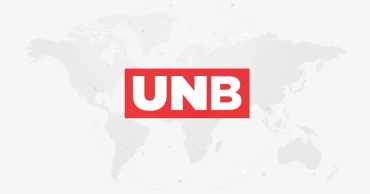
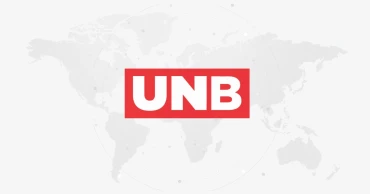
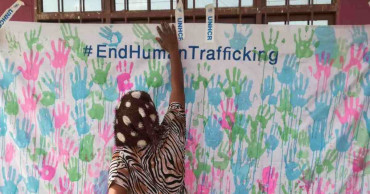

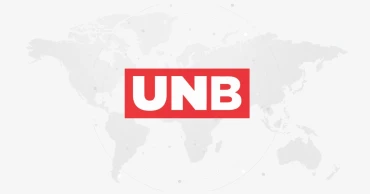
.jpg)

